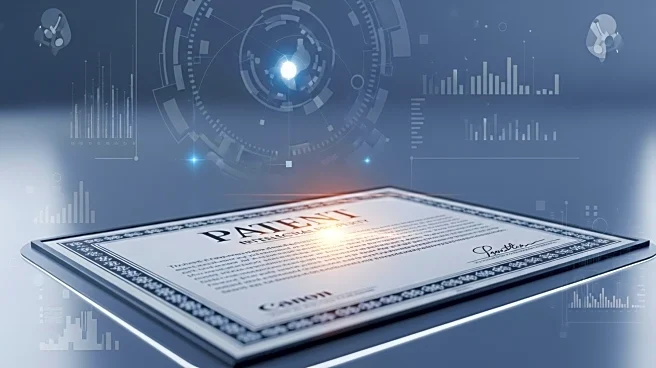What's Happening?
The Commerce Department is considering a significant change to the U.S. patent system that could adversely affect American start-ups. The proposal involves increasing fees by charging patent holders up to 5 percent of a patent's assessed value, treating ideas as taxable property. This change aims to raise revenue and narrow the deficit but could hinder innovation by imposing financial burdens on inventors, particularly in fields like biotechnology, semiconductors, and artificial intelligence. The current patent system, based on constitutional foundations, allows inventors exclusive rights to their creations, fostering innovation and entrepreneurship. The proposed fee structure could undermine this principle by taxing patents based on speculative valuations, potentially stifling early-stage technologies that lack revenue or customers.
Why It's Important?
The proposed patent fee increase could have far-reaching implications for U.S. innovation and competitiveness. Start-ups, which often rely on patents as their most valuable assets, may struggle to secure investment and collaborate with larger firms if faced with additional financial burdens. The proposal could lead to double taxation for successful businesses, as they already pay taxes on profits generated by patented products. Moreover, the dynamic nature of patent values makes them difficult to estimate, adding uncertainty to the financial planning of start-ups. This move could also benefit international competitors like China, which is strengthening its intellectual property system, potentially attracting U.S. talent and innovation overseas.
What's Next?
If the proposal is enacted, it could lead to increased lobbying and opposition from start-ups and industry groups. Entrepreneurs and innovators may seek to influence policymakers to reconsider the fee structure, emphasizing the potential negative impact on U.S. competitiveness and innovation. Additionally, there may be discussions on alternative ways to support the patent system without imposing burdensome fees on inventors. The outcome of these deliberations could shape the future of American innovation and its ability to compete globally.
Beyond the Headlines
The proposal raises ethical and strategic questions about the role of government in supporting innovation. By taxing patents, the government may inadvertently discourage risk-taking and creativity, which are essential for technological advancement. The move could also signal a shift in U.S. policy priorities, potentially undermining the trust and predictability that innovators depend on. As other countries strengthen their intellectual property systems, the U.S. may need to reassess its approach to fostering innovation and maintaining its competitive edge.









